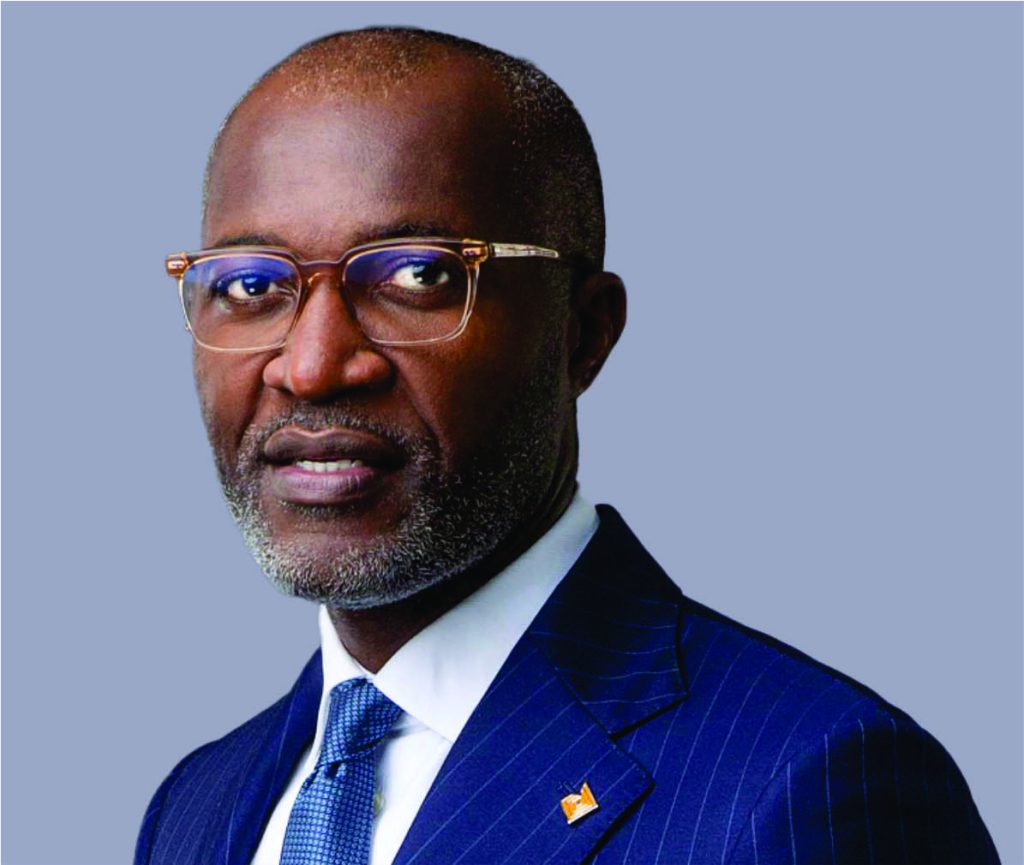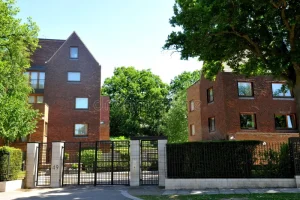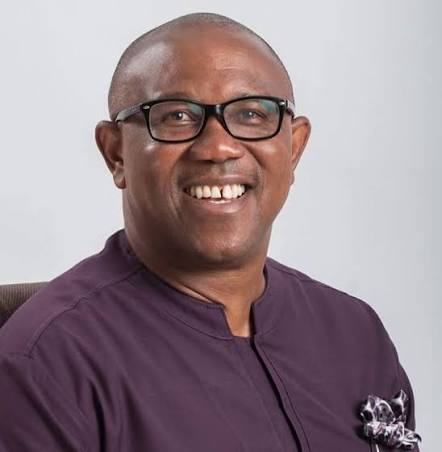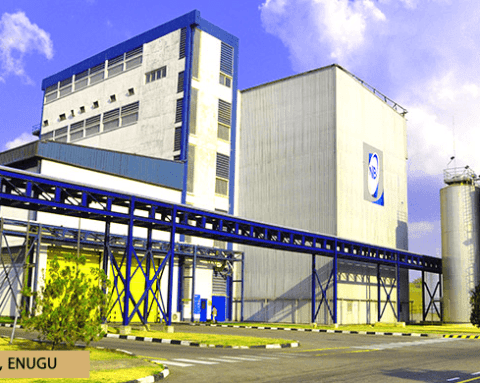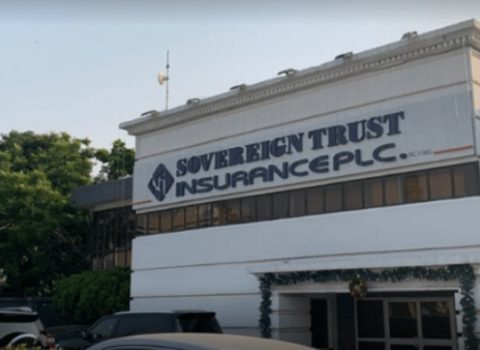When Roosevelt Ogbonna, the soft-spoken Chief Executive of Access Bank Plc, sealed the £15 million purchase of a mansion on London’s Bishops Avenue, he stepped onto one of Britain’s most exclusive streets a stretch better known as “Billionaires’ Row.”
Lined with 66 palatial homes, the leafy Hampstead address has long drawn royalty, oligarchs, tycoons, and, increasingly, African elites, symbolising both global prestige and lingering controversy.
While the acquisition stirred curiosity back home, financial analyst Abiola Rasaq argues it is well within Ogbonna’s means the product of a three-decade career in banking, prudent investments, and an estimated net worth above ₦30 billion. To him, the deal not only underscores Ogbonna’s personal success but also highlights the growing footprint of Nigerian financiers in London’s luxury property market.
Join our WhatsApp ChannelAccording to City A.M., Ogbonna’s acquisition was completed in August, with Land Registry records showing that the deal involved a mortgage from Access Bank UK, the bank’s London-based subsidiary. Originally listed at £17 million, the neoclassical-style home was secured at a negotiated price of about £15 million.
Nigerians and London Luxury
Ogbonna’s entry into The Bishops Avenue’s property club reflects a wider trend: the steady presence of wealthy Nigerians in London’s prime real estate market. From Hampstead to Mayfair, Nigerians have been among the top foreign buyers of luxury homes over the past two decades.
Reports over the years have linked Nigerian politicians and business magnates to addresses along The Bishops Avenue, although ownership details are often obscured by offshore shell companies and trusts. In some cases, properties have been left empty for years, contributing to a broader debate about housing inequality in the UK capital.
Prestige, Privacy, and Motivation
Financial analyst Abiola Rasaq in an interview with Prime Business Africa said he was surprised by the news, describing Ogbonna as “a conservative gentleman” but one who has always been a man of quality. He suggested the purchase may be as much a personal decision as a financial one.
“I guess he may have bought this in preparation for his near retirement, when he may plan to spend more time with his family, who I believe are resident in London,” Rasaq said. “People like him would have made lots of sacrifice in terms of family life, and he may well be preparing to make up for that in a luxury way that makes the statement to his family that the sacrifice is worth it.”
Rasaq added that Ogbonna’s professional track record makes such an acquisition financially feasible. “He has had a very impressive career, risen to the echelon of banking in one of the largest banks at a very young age. He is not only a CFA charterholder but also a career investment professional, so he may have made some pretty rewarding investments to complement savings from almost three decades in banking,” he explained.
READ ALSO: Billionaire’s Row Beckons: Access Bank CEO Roosevelt Ogbonna Swoops on £15m London Mansion
The Costs of Billionaire Living
Luxury on The Bishops Avenue comes with a heavy price tag beyond the purchase itself. Rasaq estimates that Ogbonna’s mansion could cost between £300,000 and £500,000 annually to maintain.
This includes council tax of about £4,000; utilities and grounds maintenance ranging from £150,000 to £250,000; staffing costs of up to £200,000 for housekeepers and security; and insurance premiums of up to £40,000. In addition, Ogbonna would have paid a one-off Stamp Duty Land Tax bill of about £1.8 million at the point of purchase.
A Strategic Investment?
While some may view the acquisition as ostentatious, Rasaq suggested that Ogbonna may also see it as an investment opportunity.
“He reportedly bought at about a 12 percent discount to the £17 million asking price,” Rasaq noted. “Given that the UK luxury real estate market is currently bearish, he may be looking to enjoy the property for a while and resell when the market rebounds. It could very well be both a lifestyle choice and an investment asset.”
A Street of Contradictions
The Bishops Avenue has always been about image: tree-lined avenues, sprawling gardens, and homes resembling miniature palaces. Yet a walk down the street today reveals locked gates, shuttered windows, and mansions falling into decay – symbols of a global elite that often treats London houses as trophies rather than homes.
This contradiction is not new. In 2009, the Evening Standard reported how squatters had taken over some of the deserted mansions on the avenue, highlighting both the exclusivity and emptiness of the street. Among the names once tied to properties there was the late Nigerian Senate President Evan Enwerem, though like many, his property became associated with vacancy and neglect.
Against that backdrop, Ogbonna’s acquisition stands out not just as another wealthy Nigerian buying abroad, but as part of a broader story of how African banking and business leaders are carving out spaces in the most exclusive corners of global cities.
For now, Roosevelt Ogbonna can count himself among the latest custodians of a postcode that is at once aspirational and controversial a place where wealth meets scrutiny, and prestige meets abandonment.
Amanze Chinonye is a Staff Correspondent at Prime Business Africa, a rising star in the literary world, weaving captivating stories that transport readers to the vibrant landscapes of Nigeria and the rest of Africa. With a unique voice that blends with the newspaper's tradition and style, Chinonye's writing is a masterful exploration of the human condition, delving into themes of identity, culture, and social justice. Through her words, Chinonye paints vivid portraits of everyday African life, from the bustling markets of Nigeria's Lagos to the quiet villages of South Africa's countryside . With a keen eye for detail and a deep understanding of the complexities of Nigerian society, Chinonye's writing is both a testament to the country's rich cultural heritage and a powerful call to action for a brighter future. As a writer, Chinonye is a true storyteller, using her dexterity to educate, inspire, and uplift readers around the world.


